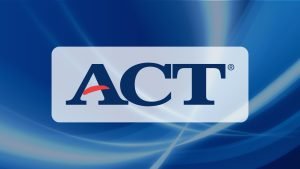Florida Residents - Step Up for Students Scholarships Direct-Pay Provider. Learn More

Florida Residents - Step Up for Students Scholarships Direct-Pay Provider. Learn More

Come April 2025, the new “enhanced” ACT test will replace the current one for those students taking it online, and those planning to take it on paper will be able to take advantage of the newly formatted ACT in September of this year.
These will be the most drastic changes to the test since it was introduced, even more so than the structural changes adopted in 1989. But what exactly are these changes and how do they affect you?
The ACT will reduce the total number of questions from 215 to 171, a difference of 44 questions.
To justify this change, the ACT drew upon the complaints of many students, who, when interviewed, responded that “The test is too long. I need more time!”
In theory, this reduction is supposed to not only shorten the test, but also allow the students to focus more deeply on the material presented. Some other effects of this change will be that each question will carry more weight in scoring, so getting even a couple questions wrong could bring down your score, meaning that students will have to be more precise and focused in their responses.
This change seems to be catering to the constantly decreasing attention spans of this new generation of test-takers. It was likely considered due to the recent changes to the SAT, where the test was shortened and made easier in general.
The overall testing time will decrease by 70 minutes, dropping from 195 minutes for the regular test to 125 minutes for the new test without the science section add-on.
Drawing upon the same excuse that “The test is too long,” the ACT Inc saw fit to shorten the test drastically, turning the over-three-hour test into one that, without the science section add-on, is barely more than two. However, the amount of time per section was not shortened in conjunction with the number of questions, resulting in more time per question:
These changes will make pacing less important, allowing students who aren’t good at managing time well to still get high scores on the test.
The Math section will feature four answer choices per question instead of five.
Previously, while the three other sections had four answer choices per question, the Math section always had five, making it more difficult to get the right answer just by guessing, forcing students to have a good knowledge of tips and tricks to use as well as the math itself. With this change, students have a 5% increased chance to answer questions correctly even if they guess, and less time will be spent on process of elimination.
This change will allow for each question to be easier to solve, and, along with the increased amount of time per question, will serve to make the Math section, which has generally been known to be the hardest of the sections, easier than it was before.
The science section, long a staple of the ACT, will no longer be mandatory.
Unique to the ACT, the Science section, though more of a logic and analysis section, is a wild card, and many students fear it even more than they do the Math section. In response to the complaints that “The science section scares me,” the ACT inc has decided that the Science section will be completely optional, drastically shortening the length of the test. I believe that this change will actually reduce the quality of this test, for the section quizzes very little actual scientific knowledge and instead tests the critical skills of logical thinking and analysis.
Students who are interested in STEM fields can choose to add on the Science section, but it will come at an additional fee.
Contrary to what some students and teachers are saying, that is, that the ACT is getting more difficult over time, these changes are clearly making the test easier. The changes to the test will be positive for any student planning to take it, though test prep will still be encouraged to achieve the desired score.
In my next post, I will strive to answer the following topics:
That being said, I am running an 8-week ACT prep course in preparation for the April 2025 test. Starting on February 10th, it will cover all four sections, along with specific tips and tricks depending on which version of the test the student will be taking.
It begins on February 10th, but registration ends on the 3rd. Click here for more information or to sign up.
If you’re interested in private tutoring, schedule a free consultation.
Get the latest tips and strategies to maximize your scores on the ACT • SAT • CLT and find scholarships.
Our most valuable tips right inside your inbox, once per week.
